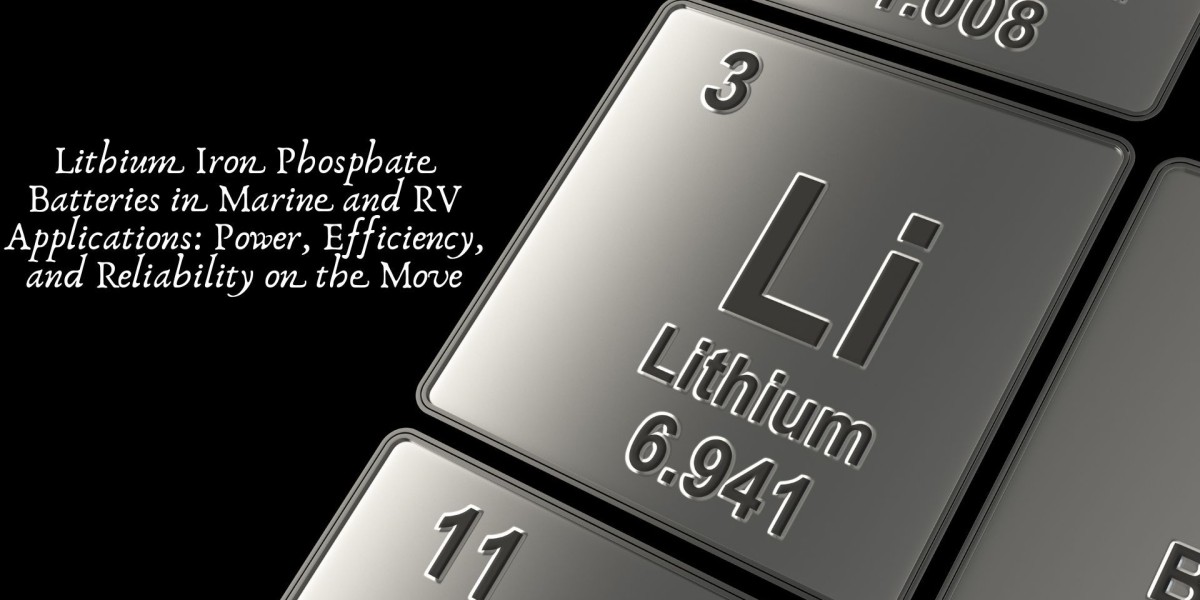As the demand for energy-efficient, lightweight, and long-lasting power solutions grows in the marine and recreational vehicle (RV) industries, Lithium Iron Phosphate (LiFePO₄) batteries are rapidly becoming the gold standard. These advanced lithium-ion batteries offer a host of benefits that make them particularly well-suited for boats, yachts, motorhomes, and travel trailers. From their superior safety profile to their extended life cycles and high energy efficiency, LiFePO₄ batteries are revolutionizing how energy is stored and utilized in mobile environments.
Why Lithium Iron Phosphate?
Lithium Iron Phosphate (LiFePO₄) batteries are a subtype of lithium-ion batteries, known for their chemical stability, low environmental impact, and impressive performance. Unlike traditional lead-acid or AGM (Absorbent Glass Mat) batteries, LiFePO₄ batteries offer:
Longer lifespan
Faster charging times
Lighter weight
Higher energy density
Greater depth of discharge (DoD)
Enhanced safety features
These characteristics are particularly crucial in marine and RV applications, where space, weight, and reliability are at a premium.
Advantages of LiFePO₄ in Marine Applications
Weight Reduction and Space Saving
Boats, especially smaller vessels, benefit greatly from any weight savings. LiFePO₄ batteries can weigh up to 70% less than traditional lead-acid batteries, freeing up weight for additional equipment or improving fuel efficiency.
High Energy Density
These batteries can store more energy in a smaller footprint, which is essential on watercraft where storage space is limited. The compact form factor allows for better integration with onboard systems and design constraints.
Superior Cycle Life
With up to 5,000 charge-discharge cycles (compared to 300–500 for lead-acid), LiFePO₄ batteries provide long-term cost-effectiveness and reliability. For sailors and boaters venturing on long journeys, this longevity translates into peace of mind and fewer replacements.
Resilience in Harsh Environments
Marine environments are harsh, with saltwater, humidity, and constant vibration. LiFePO₄ batteries are known for their robust performance and corrosion resistance. Many marine-grade LiFePO₄ units are sealed and waterproof, ideal for rough seas.
Safety First
Safety is paramount on the water. LiFePO₄ chemistry is thermally and chemically stable. Unlike other lithium-ion batteries, they are far less prone to thermal runaway, overcharging, or catching fire — a critical advantage when you're miles away from help.
Advantages of LiFePO₄ in RV Applications
Long Boondocking and Off-Grid Capability
RVers who enjoy off-grid camping (boondocking) love the extended runtime offered by LiFePO₄ batteries. With a deeper depth of discharge and higher usable capacity, they can power appliances, lights, and electronics for longer without recharging.
Faster Charging
LiFePO₄ batteries can be charged at higher rates than lead-acid, often reaching full capacity in just a few hours when connected to solar, generator, or shore power. This makes them ideal for users on the move.
No Maintenance Required
Unlike lead-acid batteries that require periodic water refilling and equalization, LiFePO₄ batteries are virtually maintenance-free. This is perfect for RV owners who want to spend more time adventuring and less time maintaining systems.
Consistent Voltage Output
Appliances and electronics in RVs can be sensitive to voltage drops. LiFePO₄ batteries deliver a steady voltage throughout the discharge cycle, ensuring consistent performance of fridges, fans, and even air conditioning units.
Lightweight and Compact
In RVs, where every pound counts toward fuel economy and payload limits, the weight savings from LiFePO₄ batteries (often half or less than their lead-acid counterparts) is a major advantage.
Real-World Use Cases
Sailing Yachts: Owners of modern sailing yachts are increasingly replacing outdated AGM banks with LiFePO₄ systems, often paired with solar panels and wind turbines for sustainable cruising.
Fishing Boats: With low weight and quick recharge, anglers benefit from more usable power without worrying about battery failure during long trips.
Class B and C Motorhomes: Compact motorhomes use LiFePO₄ to maximize space and reduce generator dependency.
Overlanding Trucks and Vans: Adventurers traveling across continents prefer the durability, low-temperature performance, and efficient charging of LiFePO₄ batteries.
Important Considerations Before Upgrading
Initial Cost
While the upfront investment in LiFePO₄ batteries is higher than lead-acid, the cost per cycle is much lower over time. Users must consider long-term savings and reliability.
Battery Management System (BMS)
LiFePO₄ batteries require a built-in or external BMS to monitor charging, temperature, and voltage. This ensures optimal operation and safety.
Charger Compatibility
Not all battery chargers are designed for lithium batteries. Ensuring your RV or boat charger is LiFePO₄-compatible is essential to avoid undercharging or damage.
Temperature Extremes
While LiFePO₄ batteries perform well in many climates, charging them below 0°C (32°F) without a built-in heating system can be problematic. Many marine and RV-grade units now come with integrated low-temp protection.
The Future of Mobile Power
With advances in battery technology and increasing awareness of sustainable energy solutions, the shift to lithium iron phosphate in marine and RV applications is gaining unstoppable momentum. Manufacturers are developing smarter battery systems, including Bluetooth-enabled battery monitoring, modular designs, and integrated solar charging solutions.
As more boaters and RVers seek independence, cleaner energy, and reliable power, LiFePO₄ batteries offer a transformative solution that blends performance, safety, and sustainability.
Conclusion
Lithium Iron Phosphate batteries have carved out a critical role in powering the modern mobile lifestyle — on both land and sea. Whether you’re navigating a remote waterway or cruising along a scenic byway, these batteries provide unmatched energy reliability, efficiency, and safety. With proper installation and management, they can power your journeys for years to come, giving you the freedom to explore further, stay longer, and live more sustainably.







